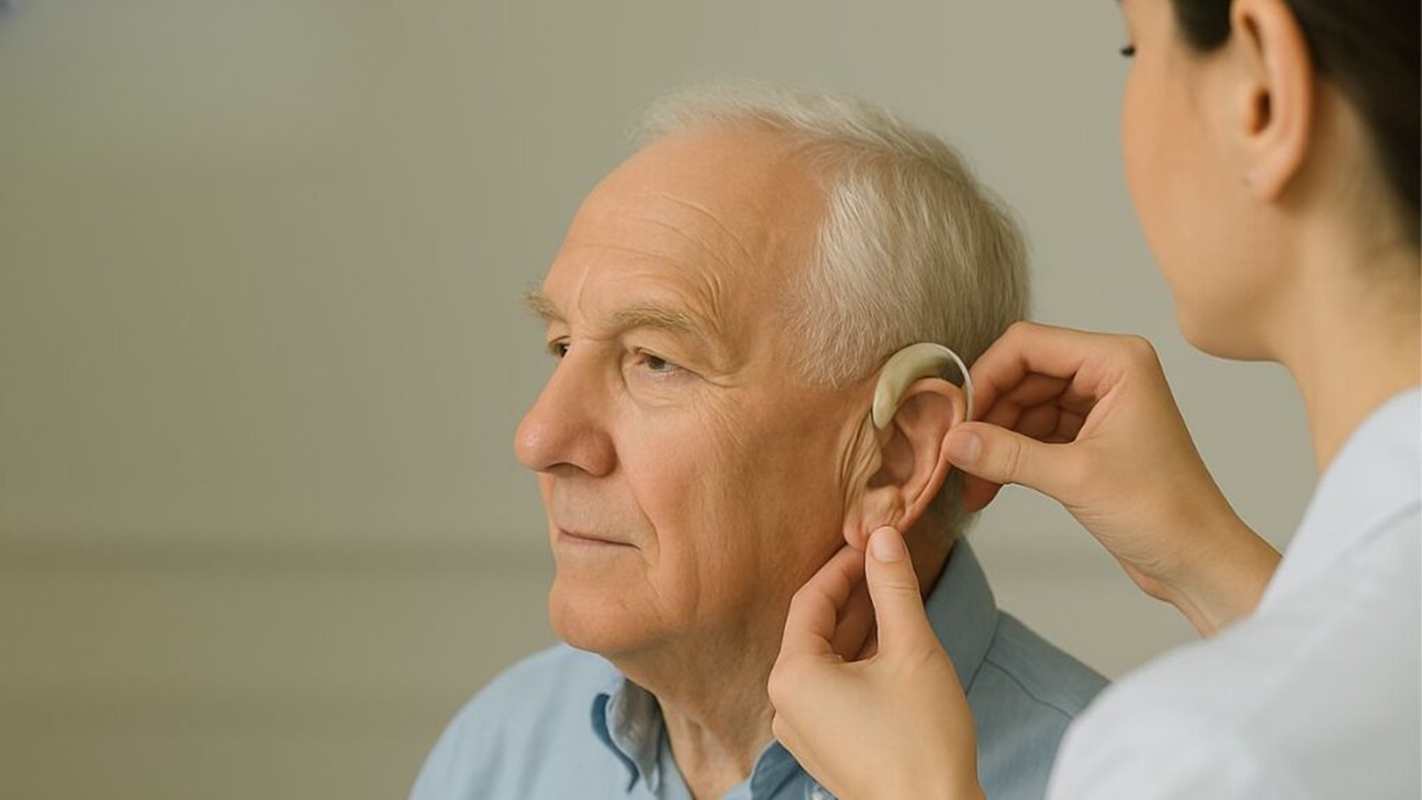Choosing the best hearing aid for seniors can make a huge difference in communication, rebuilding confidence, and participating in social activities. Hearing loss comes with ageing, and as a natural part of life, it can greatly impact the overall quality of life. An appropriate hearing aid allows older adults to hear, communicate with others, and participate in complex daily activities again.
With so many different models available, each offering different functionalities, it is crucial to identify which device is best suited for the specific hearing needs, lifestyle, and comfort. This guide outlines everything you need to know about the best hearing aids for older adults, the main features to look for in a device, and how to make the best decision.
Understanding Hearing Loss in Old Age
Common Causes
- Long-term exposure to loud noise
- Genetic factors or family history of hearing loss
- Age-related hearing decline, also called presbycusis.
Symptoms to Watch For
- Difficulty understanding speech in noisy environments
- Frequently asking people to repeat themselves..
- Turning the volume up on TVs or phones more than usual
- Avoiding conversations or social events
Why Early Detection Matters
- Early treatment can prevent further decline.
- Audiologists can provide tailored solutions.
- Improved hearing leads to better communication and mental health.
Types of Hearing Aids for Seniors
Behind-the-Ear Hearing Aids
BTE hearing aid are more liked by elders as they are simple and easy to use, and because they accommodate so many levels of hearing loss. These fit behind the ear and connect to the ear mould kept within the ear canal. They support powerful amplification with good sound quality.
In-the-Ear Hearing Aids
ITE hearing aids have been designed to fit totally within the outer ear. They are custom-fit to fill the ear canal of the user and thus provide comfort as well as discreet use. The ITE is ideal for mild to severe cases of hearing loss.
In-the-Canal (ITC) and Completely-in-the-Canal (CIC) Hearing Aids
ITC hearing aids and CIC hearing aids are even smaller and inserted deeper into the ear canal. These have a much smaller footprint and are not conspicuous, making them one of the best choices for someone with specific aesthetic concerns. However, they might be difficult to use for people suffering from the most severe forms of impairment.
Must-Have Features in Hearing Aids for Elderly People
Directional Microphones
- Focus on speech and reduce background noise
- Great for conversations in busy or social settings
Rechargeable Batteries
- Easier to manage than disposables
- Can be charged overnight for all-day use
- Environmentally friendly and cost-saving
Bluetooth Connectivity
- Connects wirelessly to phones, TVs, and tablets
- Stream calls, music, and media directly into your hearing aids
- Allows easy customisation through smartphone apps
Automatic Noise Reduction
- Filters out unwanted background noise
- Helps seniors focus on important sounds
- Ideal for crowded areas or social events
Telecoil (T-Coil) Technology
- Useful in public places with induction loop systems
- Improves hearing in churches, theatres, and auditoriums
Feedback Suppression
- Prevents whistling and squealing sounds
- Ensures a comfortable and quiet experience
Customizable Sound Profiles
- Adjust settings for quiet, noisy, or outdoor environments.
- Improves user satisfaction and hearing clarity
Top Hearing Aid Brands for Seniors
Signia
- Offers Bluetooth and rechargeable options
- Known for speech clarity and user-friendly controls
Widex Moment
- Delivers natural sound quality
- Suitable for various levels of hearing loss
- Offers app-based control and customisation
Oticon Opn S
- Designed for open sound and social interaction
- Rechargeable and Bluetooth-enabled
- Great for seniors who attend group settings
Starkey Livio AI
- Includes health tracking and artificial intelligence features
- Adapts automatically to different environments
- Perfect for tech-savvy seniors
How to Choose the Right Hearing Aid
Consider Hearing Loss Level
- Mild to moderate hearing loss may need smaller, less powerful aids
- Severe loss may require a BTE hearing aid or a high-power RIC hearing aid.
Evaluate Lifestyle Needs
- Active seniors may benefit from Bluetooth and noise reduction.
- Home-based individuals may prioritise comfort and simplicity.
Plan Budget Wisely
- Basic models are more affordable.
- Advanced options offer more features at higher prices.
- Check for insurance coverage or government aid programs.
Consult an Audiologist
- Get a full hearing evaluation.
- Receive personalised device recommendations.
- Ensure proper fitting and long-term support.
Care and Maintenance Tips
- Clean hearing aids daily with a soft cloth.
- Store them in a cool, dry place when not in use.
- Follow the manufacturer’s guidelines for charging or battery replacement.
- Schedule regular check-ups with your audiologist
Common Problems and Simple Solutions
- If the sound feels unnatural, allow time to adjust
- For discomfort, consult an audiologist for a better fit.
- If there is feedback noise, ensure the aid is properly positioned in the ear.
Conclusion
Choosing the proper hearing aid can help older adults enhance and improve their quality of life. With many options available, it is essential to evaluate the type of hearing loss, lifestyle, budget, and features, including directional microphones, rechargeable batteries, and Bluetooth. Various devices, including a BTE hearing aid, RIC hearing aid, CIC hearing aid, and IIC hearing aid, each have distinct advantages that meet different needs.
With the assistance of an audiologist and by selecting a hearing aid that fits well, works properly, and functions consistently, seniors can experience greater communication, improved connections with others, and a more independent and enriched life.
















